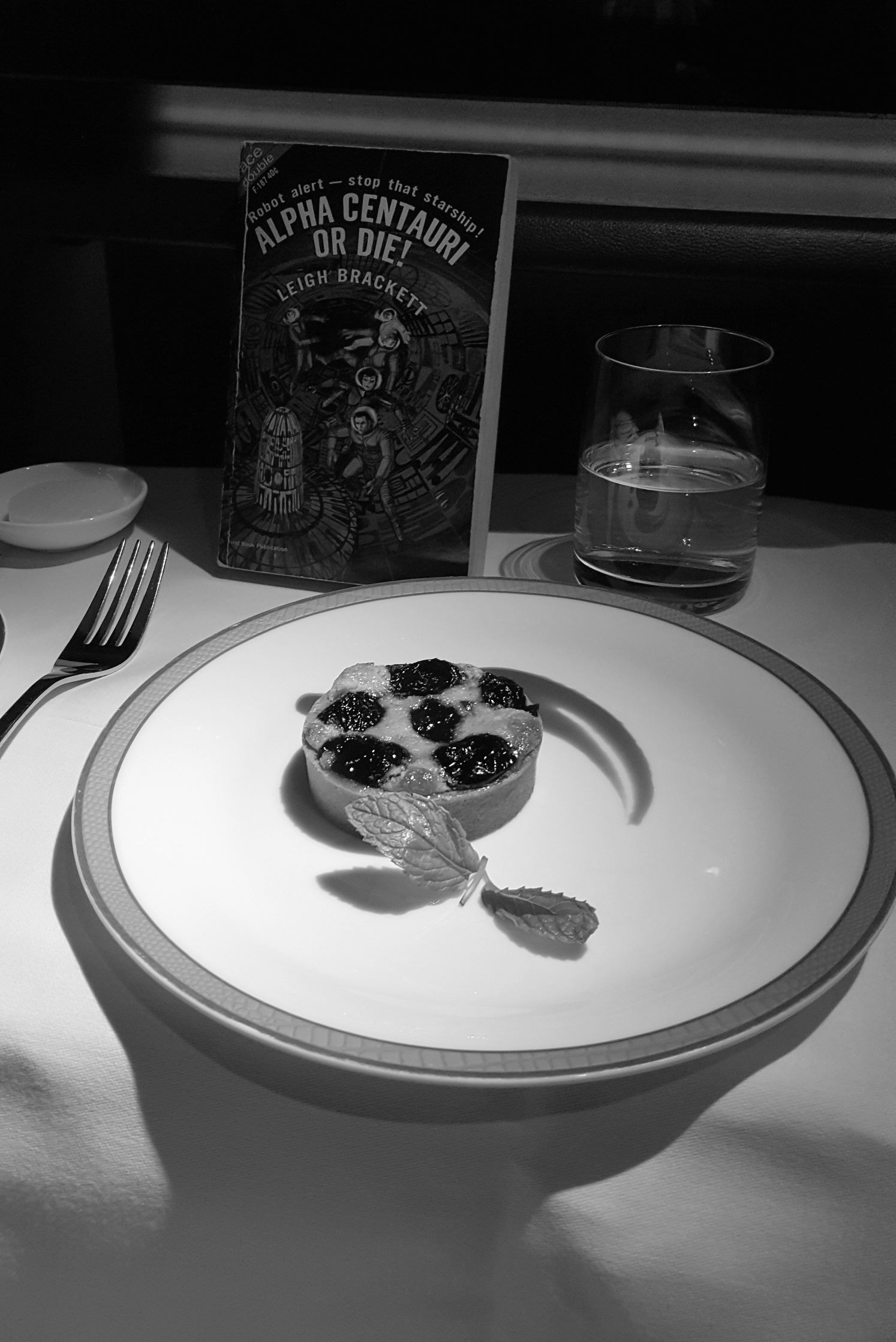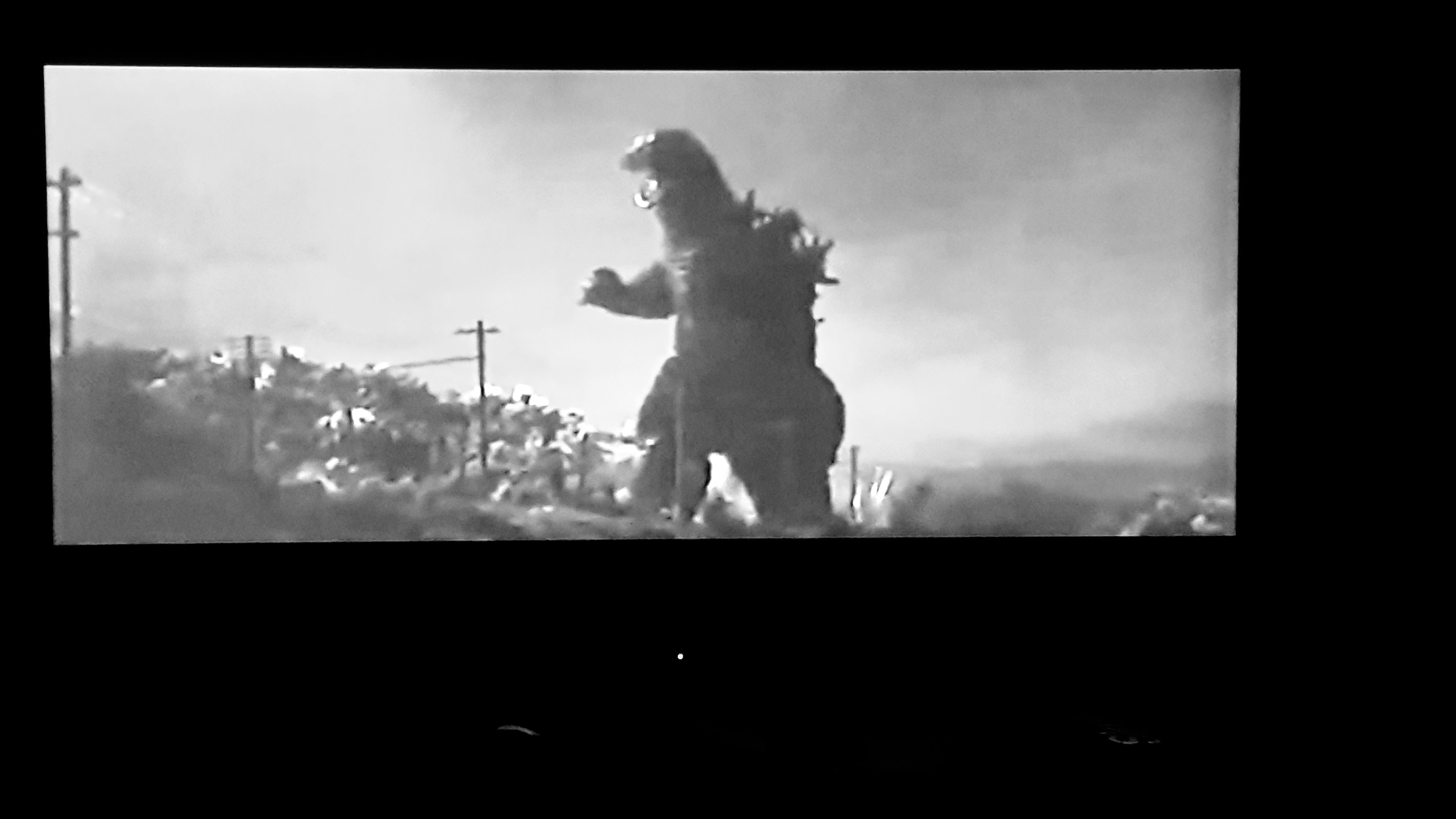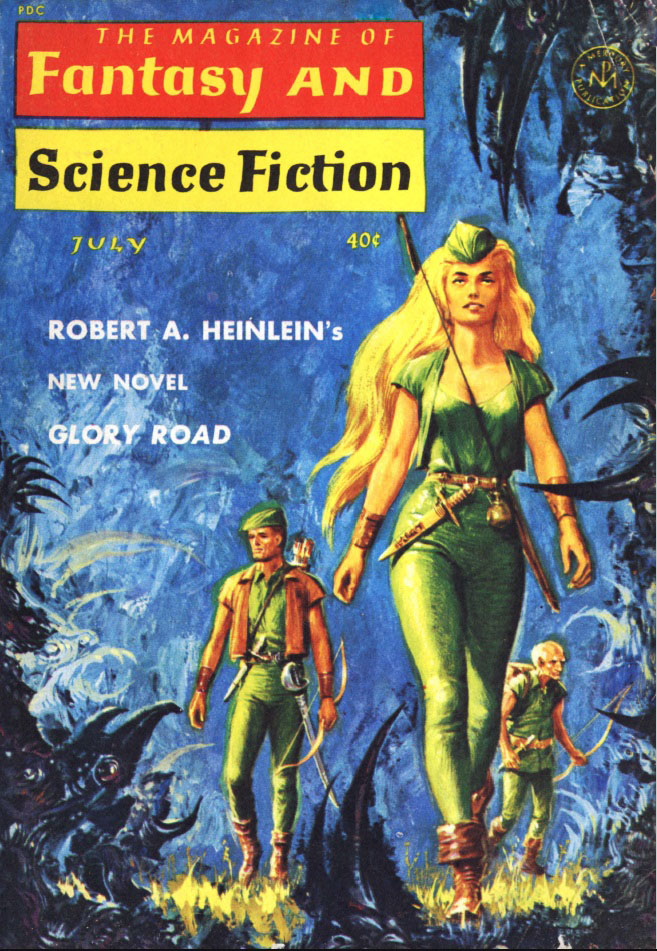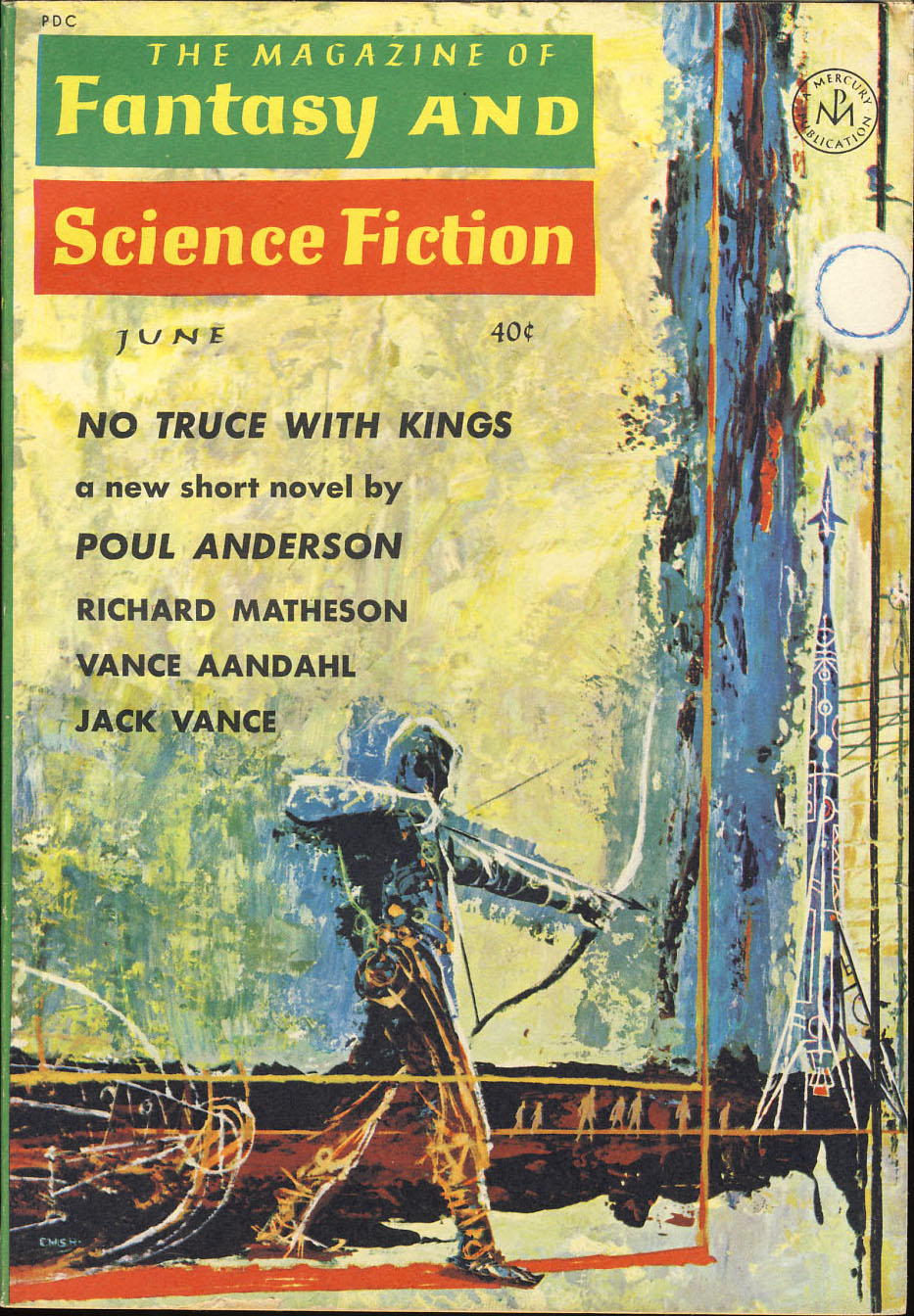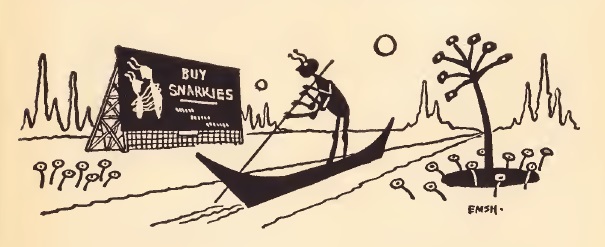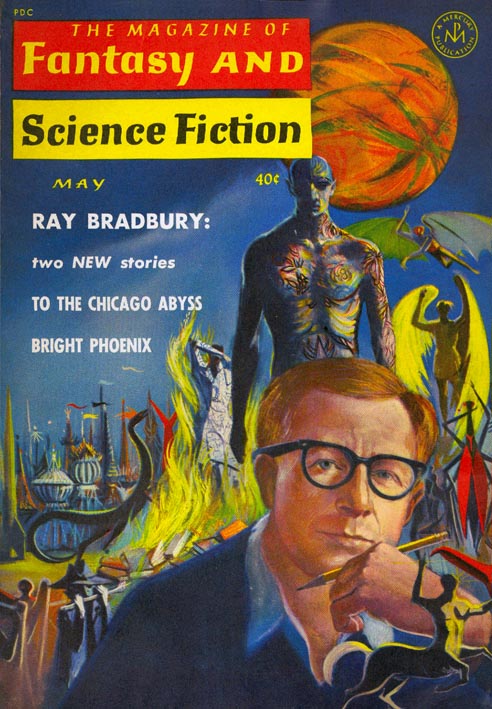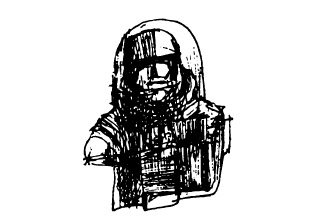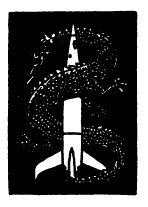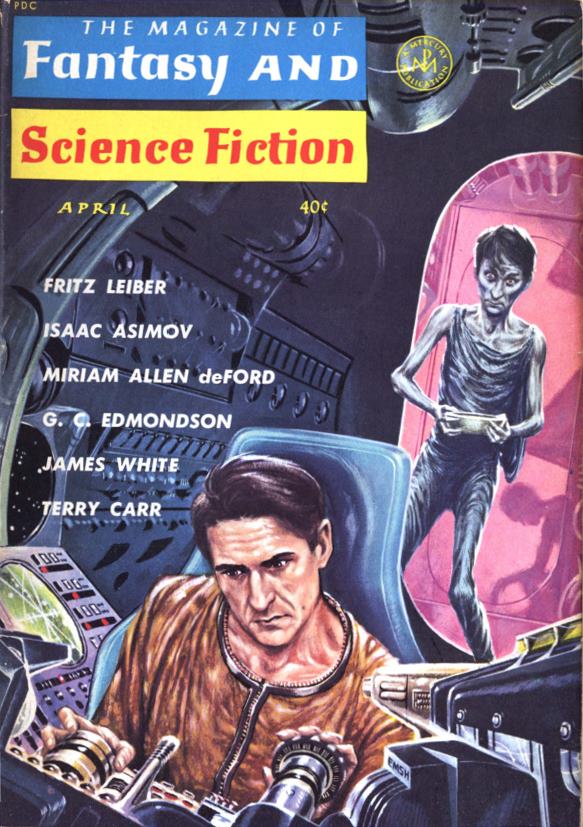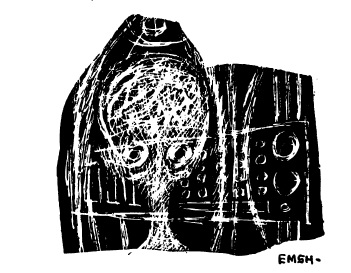
by Gideon Marcus
President McKinley once famously observed around the Turn of the Century that everything that could be invented had been invented. He was not entirely correct, as it turned out. However, if one were to read the stultifying pages of F&SF these days, one might be convinced that all the SF that could be written had been written. The February 1964 Fantasy and Science Fiction is a double-handful of cliches with a thin veneer of literary writing to make them "worthy." It's no wonder editor Avram Davidson has moved to Mexico; he is probably fleeing his outraged readers — whomever's left of them, anyway.
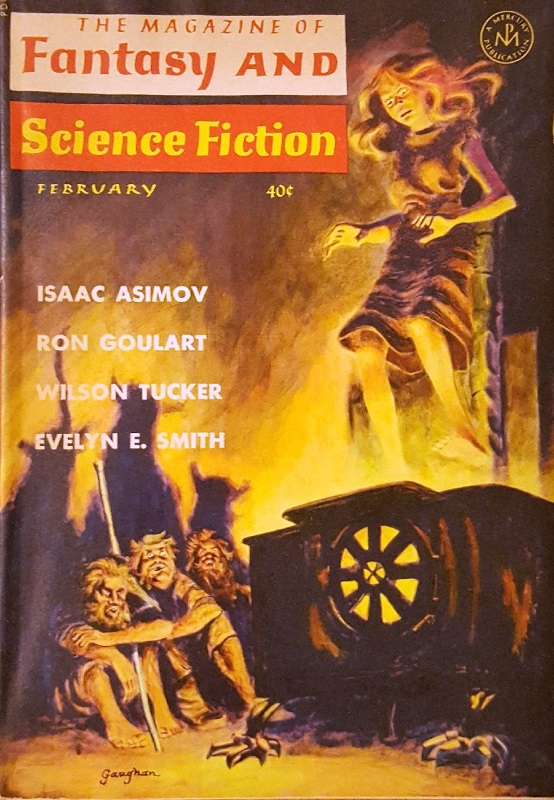
The House by the Crab Apple Tree, by S. S. Johnson
The bad ship S. S. Johnson leads the issue with possibly the most offensive piece I've read since Garrett's Queen Bee. It's an After The Bomb piece told from the point of view of one the world's last women, who is shacked up with her wretch of a husband and their fourteen year old daughter. Barely sentient, our protagonist spends most of the story wondering which of the marauding male savages who terrorize her home would make the best husband for her kid. After all, a woman needs a man.
Bad as it was, I read the whole story (for it it is passably well written) hoping to be pleasantly surprised. I wasn't. Mr. Johnson's protagonist shows no initiative at all (and, in fact, each of her episodes is characterized, even precipitated by her inaction), the daughter is violated in the end, and Davidson, in the height of tactlessness, chose to illustrate the gawdam cover of the magazine with a scene of the torture of said little girl.
One star and a new bottom for the magazine. Shame, Mr. Davidson. I hope the mail and telegrams stop service to your new home so you can do no more damage.
[And please see the letter sent in by Mr. Jonathan Edelstein, appended below. It expresses what's fundamentally wrong with this story. Thank you, Jonathan. (Ed.)]
The Shepherd of Esdon Pen, by P. M. Hubbard
Here's a stunner. After spending half the vignette telling us about a Scottish shepherd of legend, a modern shepherd departs into a freak snowstorm, searching for his lost flock, and stumbles across the tomb of none other than the aforementioned herder. When he gets back, his sheep are safe. WAS IT THE SHEPHERD OF EDSON PEN?!?
An ineptly told ghost story that earns two spectrally thin stars.
Ms Found in a Bottle Washed up on the Sands of Time, by Harry Harrison
A pointless bit of doggerel about a fellow intent on disproving the Grandfather's Paradox by doing away with his grandfather — only the old man has quicker draw.
Two stars.
Nobody Starves, by Ron Goulart
A satirical piece (or something) about a dystopian future for whose denizens everything is hunky dory until they stop being useful to society. No one starves, in theory, but it's damned hard to get a bite to eat when you can't work for your supper.
There's probably a point or two buried under the glibness, but my eyes were too dizzy from rolling to find them. Two stars.

One Hundred Days from Home, by Dean McLaughlin
The first ship to return from Mars is met halfway by a new ship zipping around at a good percentage of light speed. The kid driving the speedster guffaws at the old men and their primitive junker, offering them a quick ride home. Indignant, they refuse.
Would NASA really send astronauts to Mars and back and not tell them about a huge breakthrough in space travel? Do these fellows not even have radios? Editor Davidson says he can't get any spaceship yarns these days, so he was happy to get this one. With "science fiction" like this, who needs fantasy?
Two stars.
The Slowly Moving Finger, by Isaac Asimov
The Good Doctor has always done a decent job of making abstruse concepts accessible to the layperson. But this non-fiction piece, about the maximum ages of various animals, is too simple and could have been paraphrased as one sentence: Every mammal but humans lives for one billion heart beats; people get four times that.
Three stars.
Little Gregory, by Evelyn E. Smith
An odd, vaguely SF tale about a woman employed as a governess by a robot for an alien child who turns out to be the vanguard of an extraterrestrial invasion. It works insofar as it fulfills Smith's goal of telling a 21st Century story with 19th Century style, but I'm not sure why the thing was written at all.
Three stars, I guess.
Burning Spear, by Kit Denton
Pointless mood piece about a kid who can capture and wield sunlight, and the folks who die when they demand proof.
Two stars.
In the Bag, by Laurence M. Janifer
An obvious vignette probably inspired by a trip to the local laundry. Blink and you'll miss it. Three stars. Maybe two. Who cares?
The Fan: Myth and Reality, by Wilson Tucker
The first of a three-part series on fandom, this one is an historical essay (next month's by Robert Bloch will cover conventions). I'm a big fan of Bob Tucker, as readers well know, but this is a superficial, perfunctory piece. It's over quickly, though. Three stars? [Note: I forgot to cover this piece in the original printing — thanks to those who pointed out the omission! Ed.]
Come Where My Love Lies Dreaming, by Doris Pitkin Buck
Welcome to the overpopulated world of 2061, where the national parks on the Moon have a long waiting list, the domes open to let the air in only on rare occasion, and citizens take hallucinogenic pills to stay sane. Still, despite the hoariness of the subject matter, it's not a bad read. Welcome to the ranks of the prose writers, Ms. Buck. Now go beyond the well-trodden path.
Three stars.

I'm sounding more and more like John Boston every day. My wife likes it when I write snippy, but boy am I tired of having things to be snippy about.
Could we please get Tony Boucher or Robert Mills back in the editorial saddle again?
— — —
(Need something to cleanse your palate? See all the neat things the Journey did last year!)

![[January 18, 1964] Pig's Lipstick (February 1964 <i>Fantasy and Science Fiction</i>)](https://galacticjourney.org/wp-content/uploads/2019/01/640418cover-554x372.jpg)

![[December 21, 1963] Soaring and Plummeting (January 1964 <i>Fantasy and Science Fiction</i>)](https://galacticjourney.org/wp-content/uploads/2018/12/631221cover-661x372.jpg)


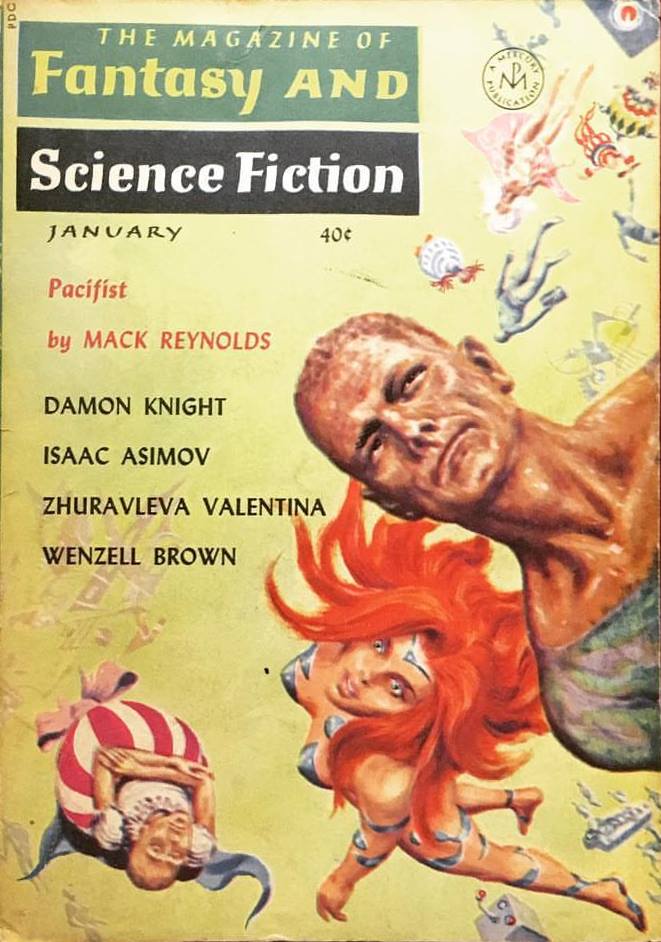

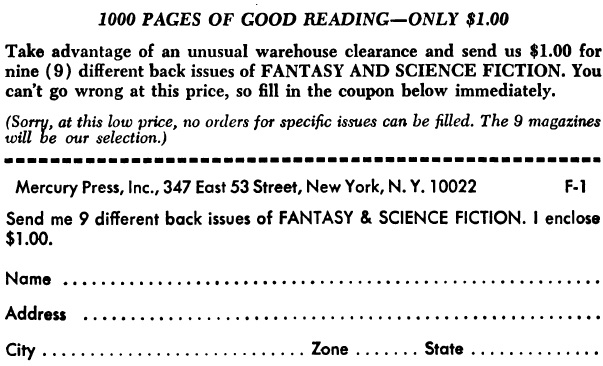

![[November 19, 1963] Fuel for the Fire (December 1963 <i>Fantasy and Science Fiction</i>)](https://galacticjourney.org/wp-content/uploads/2018/11/631119cover-667x372.jpg)



![[October 20, 1963] Science Experiments (November 1963 <i>F&SF</i> and a space update)](https://galacticjourney.org/wp-content/uploads/2018/10/631020cover-672x372.jpg)








![[August 21, 1963] Forgettable (September 1963 <i>Fantasy and Science Fiction</i>)](https://galacticjourney.org/wp-content/uploads/2018/08/630818cover-672x372.jpg)






